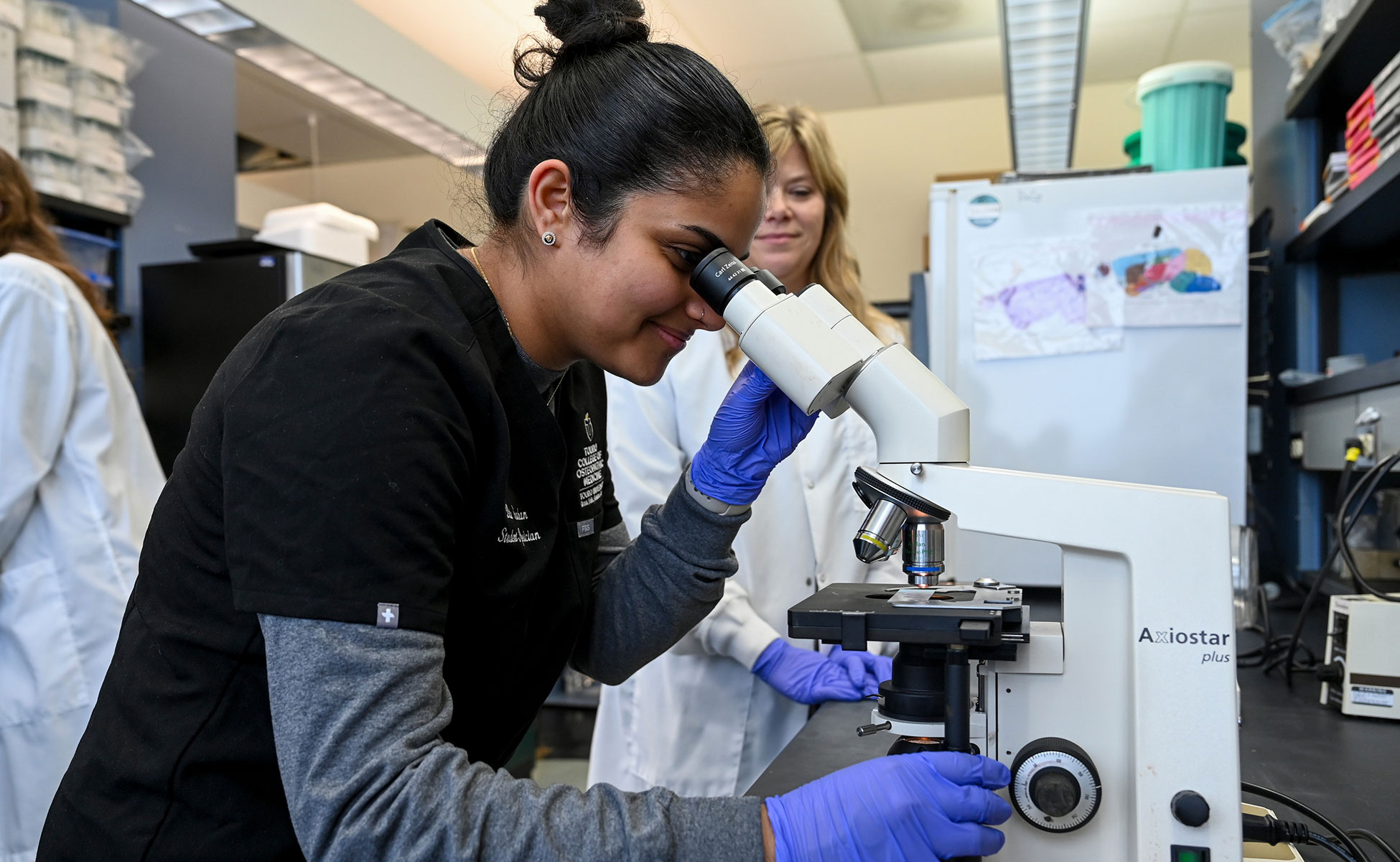TouroCOM’s Montana campus and the Weissman Hood Institute at Touro (WHIT) together provide advanced research facilities supporting a wide range of clinical, translational, and basic science investigations, including work in neurology, metabolic disease, immunology, epidemiology, and education.
Montana Research Laboratories
TouroCOM research facilities include labs and resources on the Montana campus and at the Weissman Hood Institute at Touro (WHIT), formerly McLaughlin Research Institute. Together, TouroCOM and WHIT, support advanced research in:
Clinical Translational Research
Clinical Research at the Montana Campus and WHIT/McLaughlin provides the infrastructure necessary to aid in clinical/translational projects initiated by faculty, potential sponsors and partnering health providers. This includes all necessary training, HIPPA-compliant data storage, and active regulatory assurances as part of a full regulatory framework. This also includes logistical partners such as laboratories to provide in clinic or in home draws throughout Central Montana and partnerships are in in development to expand sample collection capabilities to the far corners of the state. Finally, our clinical translational research promotes and maintains the HERO (Helping Expand Research Opportunities) Registry for a Healthier Montana. The HERO registry is the first patient registry in the state of Montana and provides a database of potential participants across the state of Montana that agree to be contacted should they qualify for a future clinical study or clinical trial.
Laboratory Facilities and Animal Resource Center
The main laboratories for basic science research are at the Weissman Hood/McLaughlin Research Institute, which also houses the Animal Resource Center for the Montana campus. The McLaughlin Research Institute is a 44,000-square-foot building two blocks from the main campus. In addition to individual lab space, the Institute hosts an enhanced BSL-2 facility and is fully equipped for molecular genetics and tissue culture with equipment necessary for prion research and human subjects research. The institute also hosts several research core facilities including the Transgenic Mouse and Cell Line Facility, the Protein Core Facility, and the Flow Cytometry/Cell Sorting Facility. The Animal Resource Center is designed exclusively for preclinical studies in mice, allowing efficient animal care, fewer demands for veterinary oversight, and, consequently, per diem rates lower than most other institutions. The ARC is fully accredited by AAALAC and occupies approximately 13,000 sq. ft.
Epidemiology and Mental Health
The Montana campus has private and state partners that provide access to epidemiological and electronic health record data from the state of Montana. These data are used in projects to investigate potential causes of the high suicide rate in the state of Montana, understand the current gaps in Alzheimer’s disease diagnosis in the state, and investigate pregnancy outcomes and mortality, among others.
Neurology, Neurodegeneration, and Aging
The faculty of individual laboratories at the Weissman Hood Institute at Touro / McLaughlin Research Institute are focused primarily on neurology, neurodegeneration, and aging with studies in Alzheimer's disease, Parkinson's disease, age-related macular degeneration, ALS, and chronic wasting disease. Other faculty there focus on metabolic disease and rare genetic disorders.
Clinical Case Studies
At the Montana campus, both students and faculty participate, in collaboration with neighboring healthcare providers, on clinical case studies and reports in collaboration. The clinical case studies contribute to our knowledge of clinical practice, provide for interaction with our clinical partners, and provide opportunity for presentations and publications.
Pain Research
Clinical observations have demonstrated varying responses to anesthetics. Studies at the Montana campus on focused on variant responses to common local anesthetics such as lidocaine. Research on varying sensitivities to anesthetics is the subject of clinical study and contemporaneous studies in model systems.
Metabolic Disease
A central hypothesis regarding diabetes and protein misfolding is under investigation at the Touro Montana campus. Misfolding and aggregation of the 51 amino acid insulin protein was previously described in two separate clinical condition during insulin therapy in diabetic patients: 1) after delivery of large boluses subcutaneously, and 2) when insulin is in prolonged presence of plastic tubing. The impact of protein misfolding on long-term outcomes such as insulin resistance is the subject of research.
Educational Research
An expanding area of research is in education of students in the Doctor of Osteopathic Medicine and the Master of Science in Interdisciplinary Studies in Biology and Physical Sciences programs in Montana. The launch of a new school of osteopathic medicine in a region of the United States, not previously served, provides the opportunity to track educational outcomes and impacts on community health.
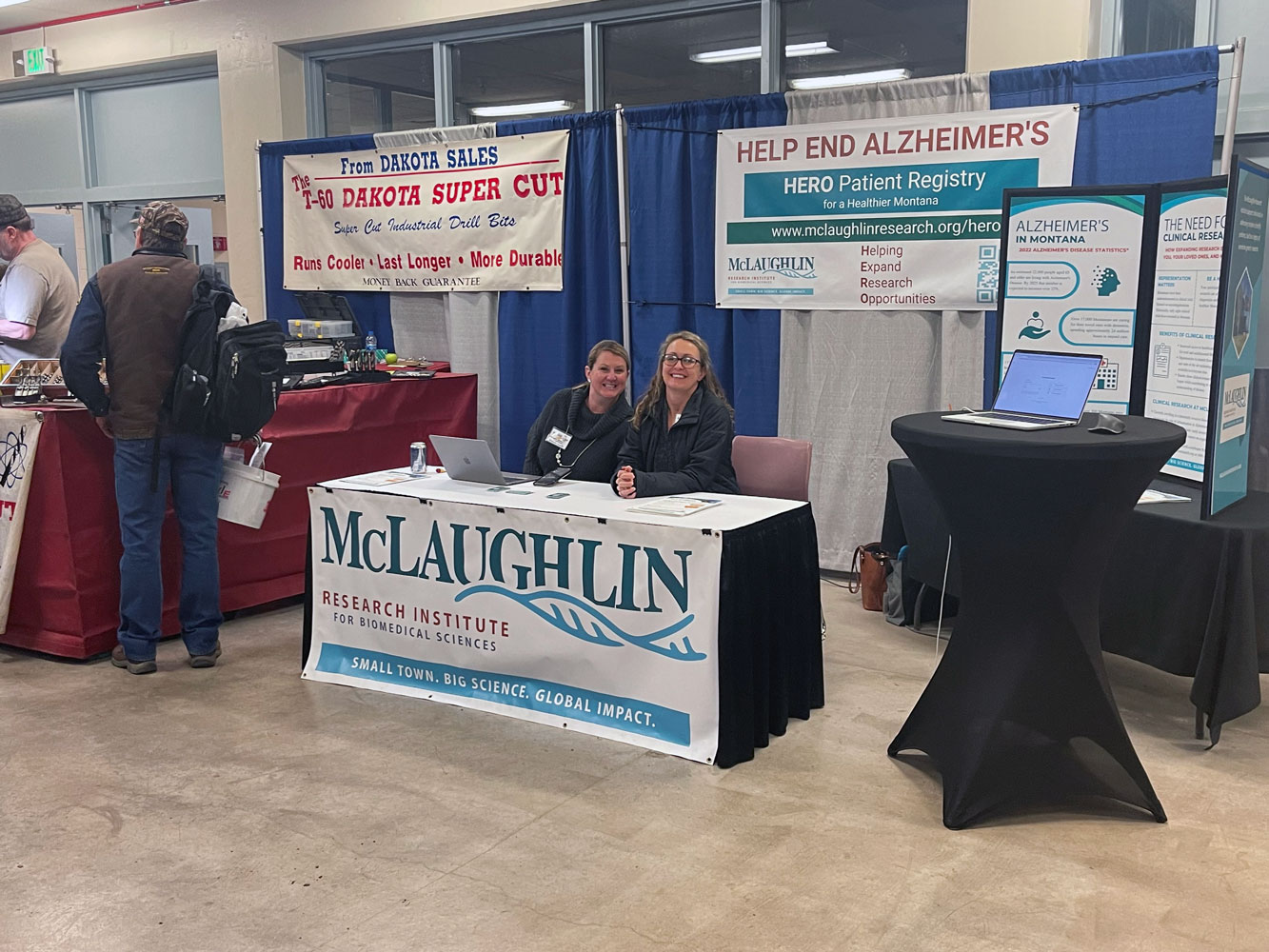
Researchers from the McLaughlin Research Institute and Touro – Montana launch the HERO (Helping Expand Research Opportunities) Registry for clinical trial inclusion, at the Montana Agricultural Exposition.
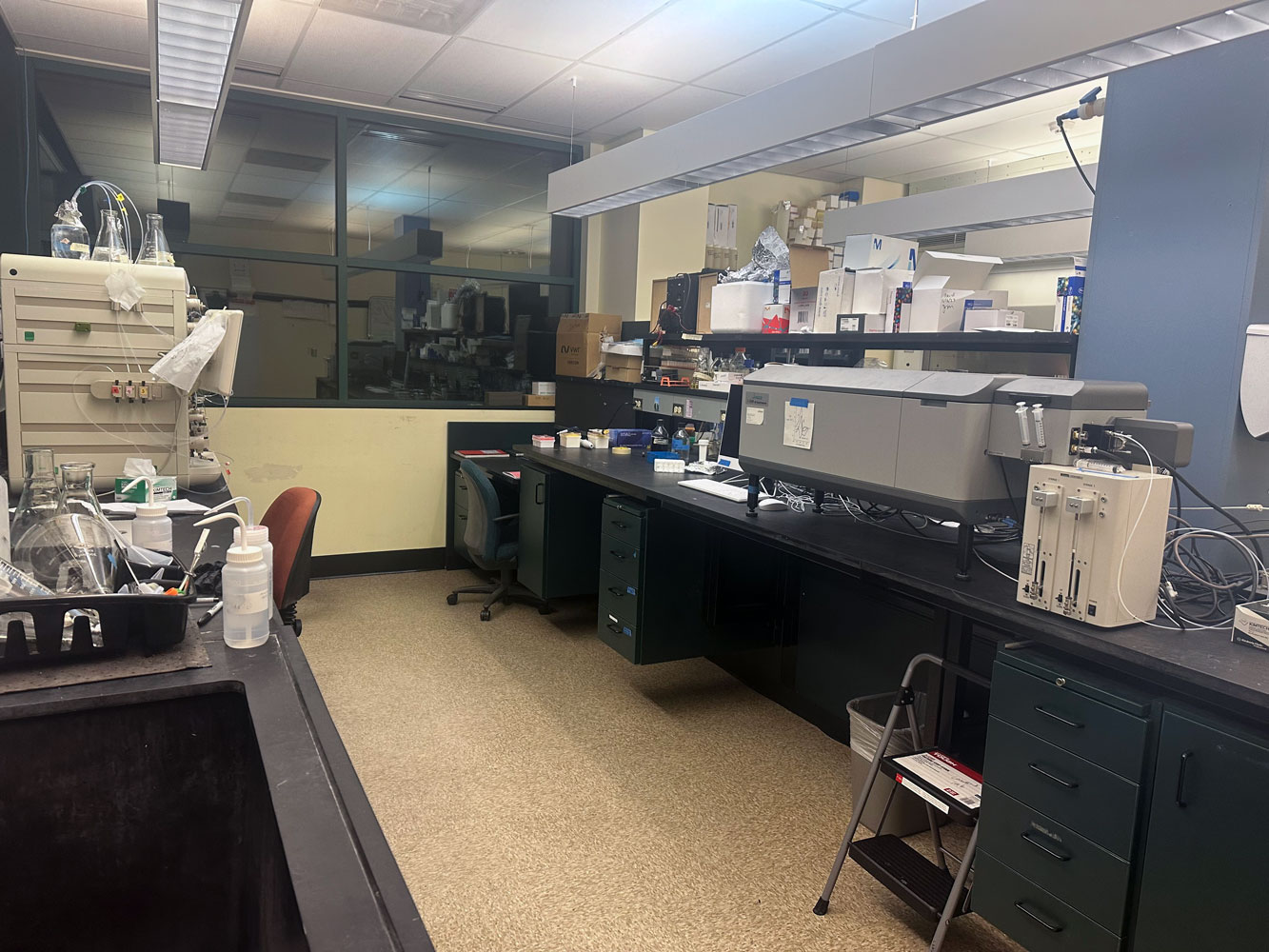
Protein biochemistry laboratory.
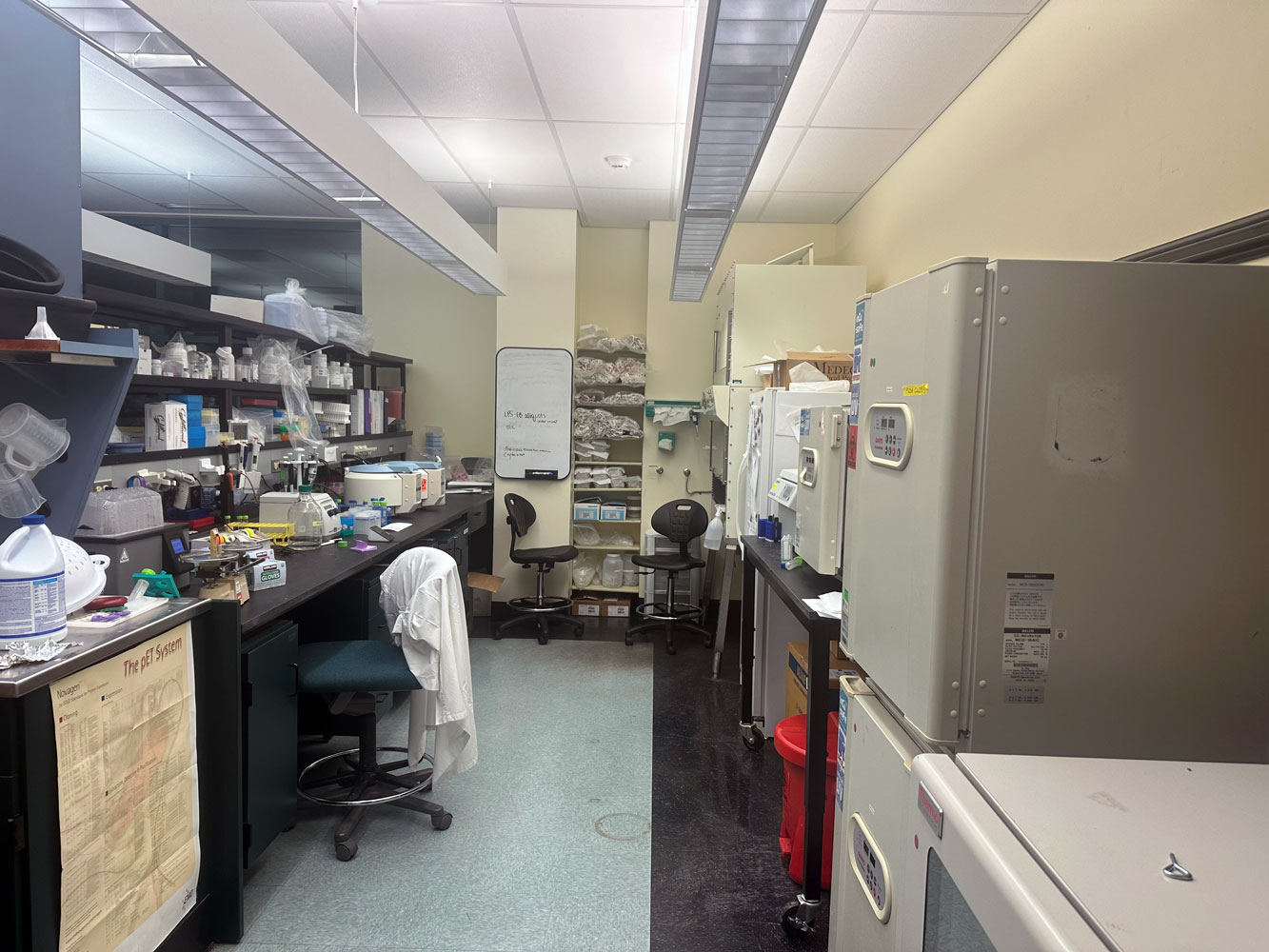
Some of our research is aimed at understanding Alzheimer’s disease and the immune system and gut microbiome in our cell culture and laboratory facilities of >35,000 square feet.
Research Leadership

Stephanie Zeszutek, DO, FACOG, RPh
Research interests: women’s health (including pregnancy, miscarriage, and chronic pain) and best educational practices.

Renee Reijo Pera, PhD
Research focus: the link between early development and disease as we age

Tiffany Hensley-McBain, PhD
The Hensley-McBain lab studies the immune mediators that connect microbial dysbiosis to disease using mouse models and in vitro systems to inform targeted therapeutic approaches for chronic inflammatory conditions, including neurodegenerative diseases and chronic viral infections.
Faculty

Brenda Canine, PhD
Research interests: metabolic disease and protein folding, mental health and suicide, and understanding Alzheimer’s disease.
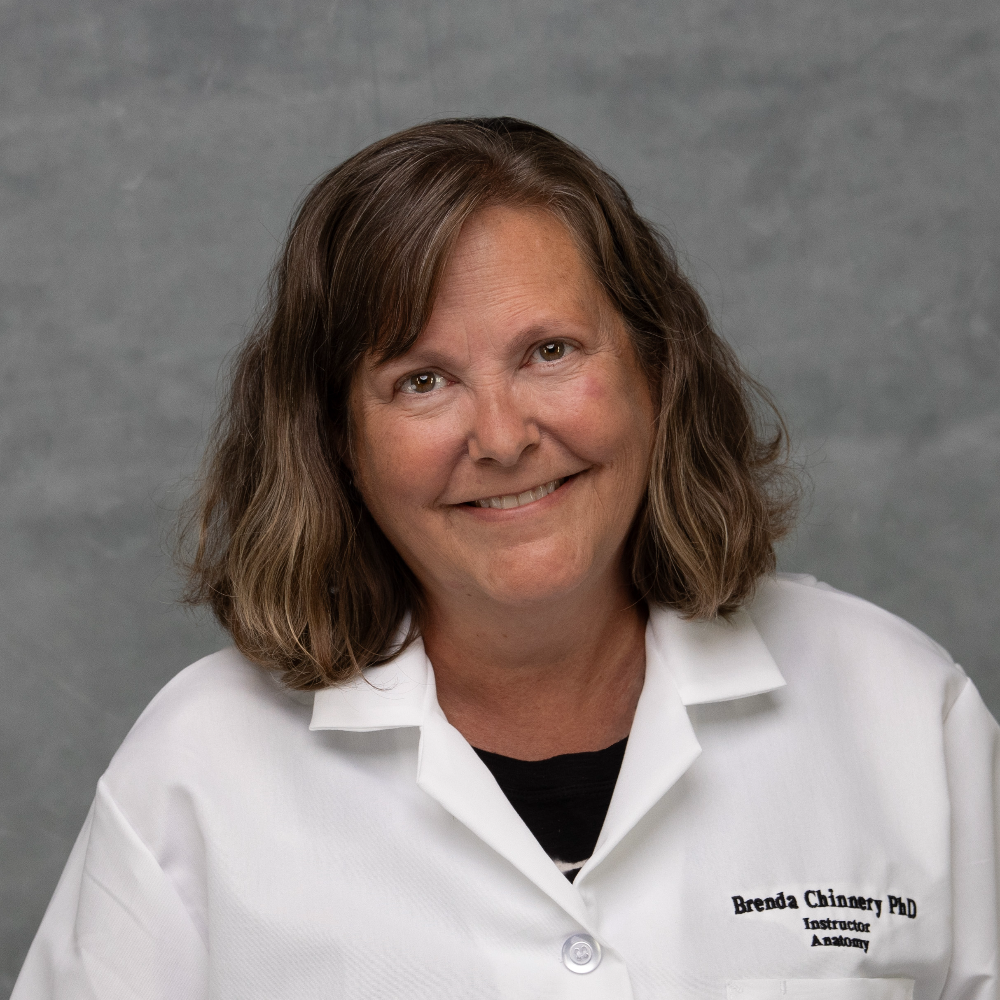
Brenda Chinnery, PhD
Research interests focus on using state-of-the-art technologies with highly efficient laboratory techniques to inform curation of specimens, museum displays and other outreach activities. She has outstanding organizational skills and will gladly serve as a mentor or part of a team for a research project.

Andrea Grindeland, DVM
Current Research: Finding early detection methods and understanding genetic susceptibility factors for Chronic Wasting Disease, a neurodegenerative disease of deer and elk with potential for ecological impacts, is the Grindeland laboratory’s main focus.

Teresa Gunn, PhD
Research interests include the generation and characterization of mouse models of human disease, with a focus on neurodegenerative and neurodevelopmental disorders as well as congenital heart defects, with the goal of gaining a better understanding of the underlying pathways and identifying potential therapeutic targets.

Mikael Klingeborn, PhD
Research focus: to understand the disease mechanisms of age-related macular degeneration as manifested in the retinal pigmented epithelium (RPE) cell layer in the eye.

Daniel Lawver, PhD
Daniel Lawver's research primarily focuses on the evolution of reproductive anatomy and physiology of turtles, dinosaurs, and their avian descendants. Additionally, he is interested in the ontogenetic changes of these organisms from embryos to sexually mature individuals. Techniques utilized in his lab include analysis of fossil and modern histological sections under polarized light microscopy, scanning electron microscopy, and cathodoluminescence. Embryological analysis involves micro-computed tomography and specimen segmentation to produce high-fidelity 3D models.

Moses Leavens, PhD
Research interests: neurodegenerative disease proteinopathies, protein folding (abnormal protein conformers, protein modifications), and biomarkers.

S. Diane Lund, PhD
Research interests: educational outcomes

Michelle Marchington, PhD
Research interest: Alzheimer’s disease

Thomas Miller, DO, MPH
Research interests: occupational medicine, urgent care, and public health in primary care.

Kartick Pramanik, PhD, BPharm, MPharm
The primary research interest in Dr. Pramanik’s laboratory is to understand the molecular mechanisms that regulate chemo-resistance and metastasis in pancreatic and lung cancer. His research includes the role of oxidants and antioxidants in cancer progression, chemo-resistance, and metastasis; as well as medical education research and the success of DO education.

Becky Slater, DO
Research interests: developing and employing collaborative communication and decision-making methods with cutting-edge technology to implement medical simulation educational scenarios.


